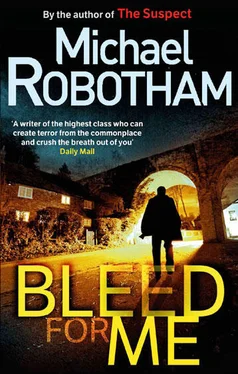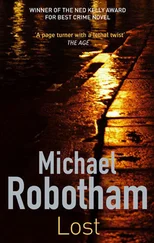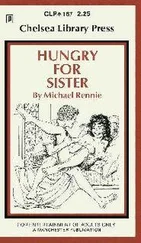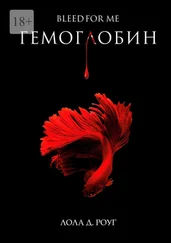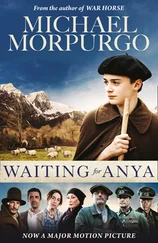Beyond the media scrum, I see a separate crowd of bystanders who have come to watch, having heard the news on TV or radio or Twitter. Among them are girls in school uniforms. Gordon takes a piece of paper from his pocket, smoothing it between his fingers. Clearing his throat, he smiles with a boyish shyness. The cameras respond with a fuselage of clicks and whirs.
‘Firstly I want to say that I have devoted nearly fifteen years of my life to teaching and I cherish every child that I have taught. I am being victimised here. I am being hounded. I am being punished for caring too much.’ He pauses, composing himself. ‘I have a lovely wife and a son. I would never do anything to embarrass them or hurt them.’
The quake in his voice, his sense of disbelief, the hurt in his eyes, all seem genuine.
A reporter yells a question: ‘Did you sexually assault a student?’
‘No.’
‘Why has she made a complaint?’
‘I think she has been coerced and coached by a psychologist who recently assaulted me and has been charged by the police. Professor Joseph O’Loughlin has launched a vendetta against me. He has threatened and harassed my wife.’
‘Why would he do that?’ asks a reporter.
‘You should ask him that.’
Another journalist shouts louder than the rest. ‘Are you standing by your husband, Mrs Ellis?’
Natasha nods.
‘So you’re saying this girl is lying?’
Gordon answers. ‘The girl who has made these allegations is a very troubled teenager with a history of cutting herself. She is also accused of a serious crime and could be trying to deflect attention from herself.’
‘Why would she blame you?’
‘She developed an infatuation. She stalked me.’
More questions are shouted. ‘Was she your babysitter? Did she ever travel in your car? Were you ever alone with her?
A female reporter yells, ‘Is it true she was pregnant?’
Gordon stammers.
‘Did you try to arrange an abortion for her?’
The atmosphere has subtly altered and Gordon’s contrived façade is beginning to crack. This has become a blood sport and the hounds are baying.
A photograph appears in his hand. ‘This is my son, Billy. He’s my joy. I love children. I would never do anything to hurt a child.’
It’s an appeal for understanding rather than a defence. In the beat of silence that follows it’s clear he hasn’t swayed his audience. His lawyer tries to intervene but the questions keep coming.
‘What happened to your first wife, Mr Ellis?’
‘Were you suspected of her murder?’
‘Why did you change your name?’
Gordon blinks at the cameras - out of words. Pushing past the photographers and reporters, he manages to cross the flagged concrete path to a waiting car. The crowd has swelled, almost blocking the road.
‘We love you, Mr Ellis!’ yells one of the teenage girls, triggering a chorus. ‘We believe you.’
Gordon stops, squares his shoulders and gives them a grateful smile. The girls squeal as though acknowledged by a film star.
The car pulls away. Photographers run alongside, shooting through the tinted windows. Natasha Ellis has covered her face. Gordon defiantly sticks out his jaw.
Ronnie Cray appears alongside me, lighting a cigarette and exhaling.
‘He acted like a rock star and they treated him like a scumbag. That’s how life balances itself out.’
‘You briefed the reporters.’
‘I couldn’t possibly comment.’
There are three unmarked cars and two motorcycles following Gordon Ellis. Neither too old nor too new, the vehicles blend in with the traffic and constantly change positions.
Safari Roy is two-up in the lead vehicle, dressed like a businessman on his way home from work. Car two is a Land Rover Discovery, half a block behind, driven by a woman officer who looks like a typical mother on a school run. There is also a tradesman’s van, a motorcycle courier and a minibus.
Gordon Ellis will expect the police to follow him, but this fact won’t ease his anxiety. He’ll still look over his shoulder and study the vehicles and faces of the drivers. Each time he’ll see a different car and a different face. Nobody familiar. Nothing out of place.
‘It’s costing a fortune,’ says Cray, as she watches coloured dots on a computer screen - each one representing a different surveillance team. I have to swap vehicles and personnel every twelve hours.’
‘How long have you been given?’
‘Forty-eight hours. He has to make a move by then.’
‘He will.’
We’re being driven down Newgate Street past Castle Park. The narrow harbour slides by, sluggish and brown. A handful of boats are tied up along a dock, most of them moored permanently and painted with advertising.
Sienna is next to me, wearing a baseball cap pulled low over her eyes. Leaning her head against the window, she watches joggers dressed in Lycra circling the paths and mothers pushing children on tricycles with handles. Most are wrapped in waterproof jackets and look tired of waiting for the warmer weather to arrive. That’s the way it is with Bristol. In winter it’s full of weary, pinch-faced urbanites, but come the summer they grow a smile.
The car pauses at a police checkpoint and we wait for the plastic barricade to be pulled aside. The Crown Court precinct is quiet. Most of the protesters have dispersed but a token few are sitting on the steps of the Guildhall, outnumbered by police officers.
We walk Sienna through the main entrance and the security screening. The clock in the foyer has just gone two. Court One is due back in session.
Taking Sienna upstairs, we push through the doors. She slides on to a bench seat in the public gallery. Her baseball cap is pulled even lower. Rita Brennan is two rows in front of us. Ruiz is off to the side. He glances at me and barely nods.
In the main body of the courtroom, Novak Brennan, Gary Dobson and Tony Scott are sitting in silence in the dock. Julianne waits at her microphone and Judge Spencer has his head down, tapping the keys of a laptop. His silver horsehair wig gleams under the hanging lights.
A door opens at the side of the court. The jury enters in single-file, moving to their usual seats. The foreman sits nearest the judge.
Cray whispers to Sienna. ‘Tell me if you recognise any of them.’
Sienna raises her eyes, looking from face to face. She shakes her head.
‘What about the guy in the front row, far left?’
She leans forward. Studies him. Shakes her head again.
‘Are you sure?’
A nod.
Cray looks at me.
Marco Kostin is being recalled to the witness box. He shuffles this time, less confident than I remember. Diminished. The light has washed out of his eyes and his skin is blotchy and damp.
Novak Brennan’s barrister, Mr Hurst, QC, has a narrow, choleric face with small busy eyes. Pacing back and forth in front of the jury box, he makes eye contact with individual jurors who seem to look down or away. He turns to the witness box.
‘Before the break, Mr Kostin, you were describing the house. You said you were sleeping when you heard the sound of glass breaking. Is that correct?’
Julianne translates the question.
Marco nods and answers in a hoarse voice.
‘If you were sleeping, how are you certain it was glass breaking that woke you?’
‘I heard it more than once.’
‘How many times did you hear it?’
‘I’m not sure.’
‘You’re not sure. I see.’ Mr Hurst exchanges a look with the jury. ‘Are you sure you went to the window?’
‘Yes.’
‘From the second floor you claim to have seen my client sitting behind the wheel of a van. How far do you think that was?’
Читать дальше
